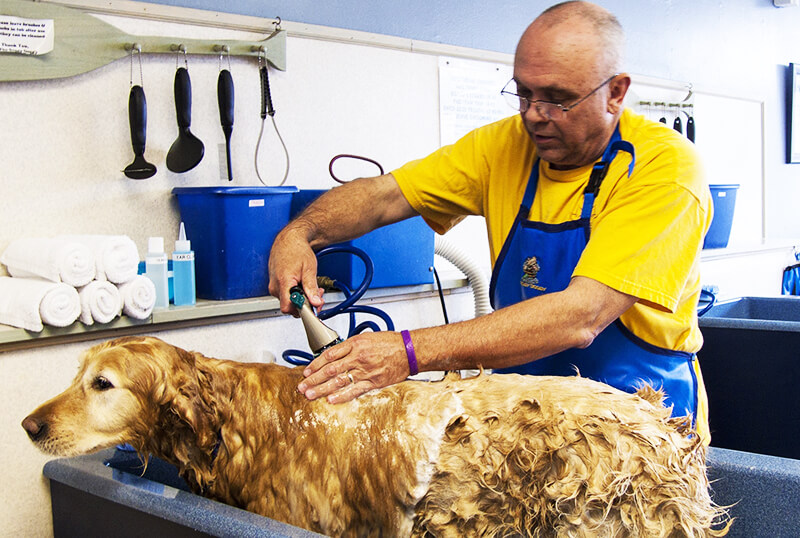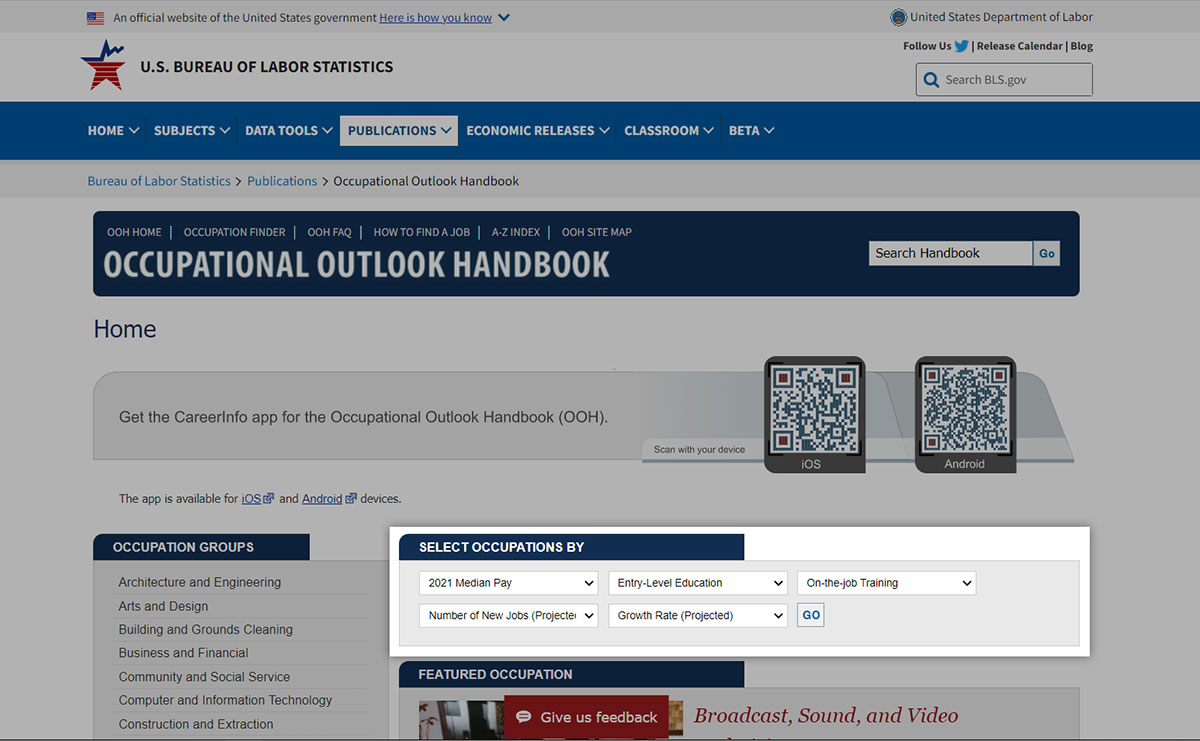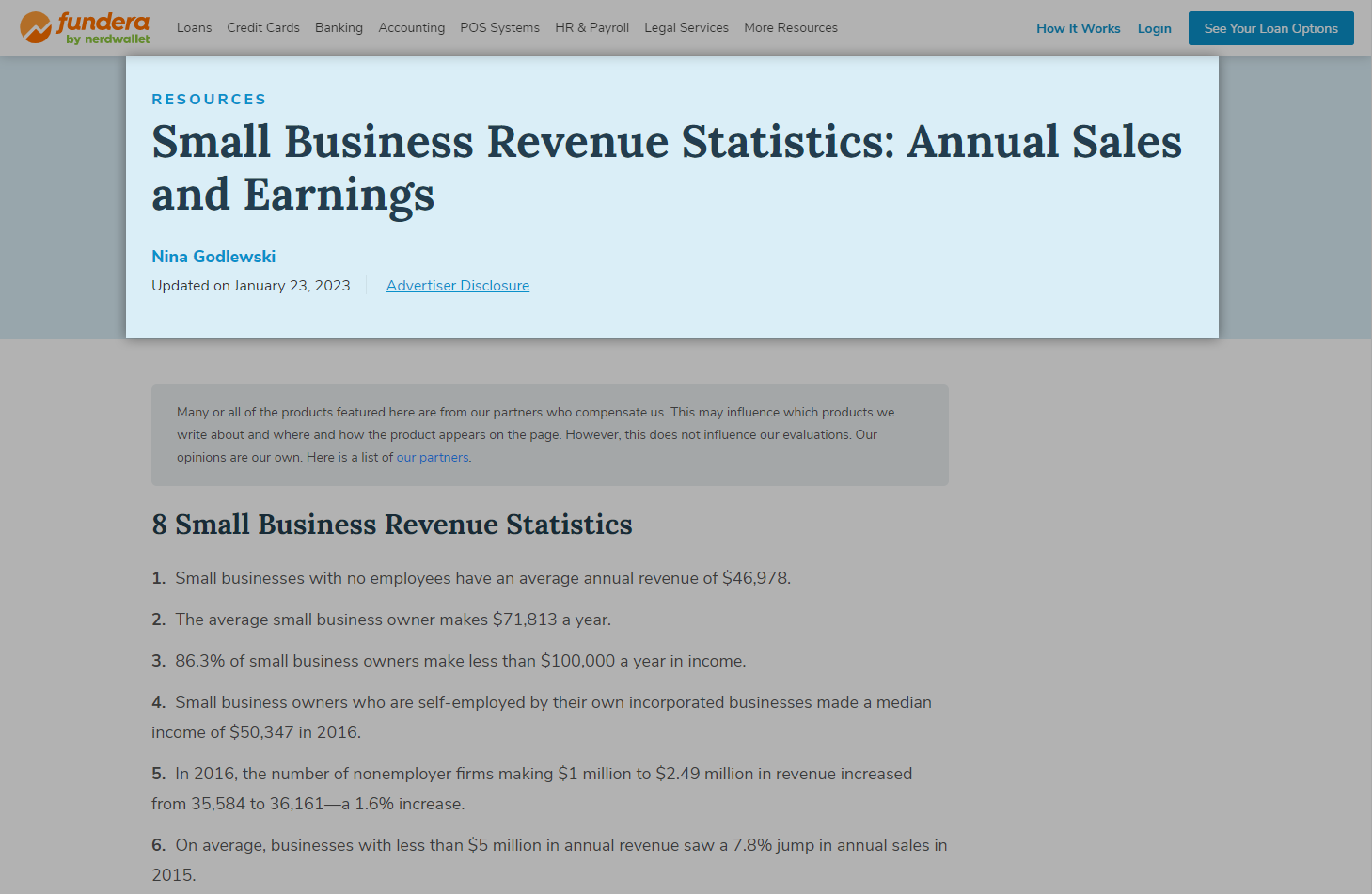Are you looking for small business ideas to start in 2024? Every business owner has different priorities, so we’ve structured this blog to help you consider the business ideas that are best suited to you.
One question many new entrepreneurs have is how to find business ideas that match their skills, lifestyle, and financial goals. This article will help you brainstorm business ideas by listing small businesses that have
- A proven business model
- A reasonable initial investment
And they don’t require too much effort for most business owners to get off the ground.
We’ll start by providing some resources that will help you narrow your business options then break our list of lucrative business ideas into sections based on different interests and business goals. That’s followed by a brief overview of how to choose the best business to start for you.
By the end of this article, you’ll have the resources you need to review relevant testimonials, home in on a great business idea, and take your first steps toward small business ownership.
We’ve broken the business ideas into the following categories. Click any of the links below to jump straight to that section:
- The 23 Most Profitable Business Ideas (2024)
- 6 Businesses That Never Fail (Well, Rarely)
- 22 Home Business Ideas
- 33 Low-Cost Business Ideas with High Profit Potential
- 59 Online Business Ideas
- What Are Good Business Ideas for Women?
- 12 Truly Unique Business Ideas
- 56 Small Business Ideas for Teens
- 19 Categories of Business Ideas You Can Also Consider
- Research Methodology
- How to Choose Small Business Ideas
- Implement Your Own Business Idea!
- Conclusion
Get ready to find a successful business idea that fits your needs. Let’s start with some of the most profitable business ideas you can start in 2024.
The 23 Most Profitable Business Ideas (2024)
Business owners are trying to make good money, and the best way for new small business owners to succeed is by starting a company in a thriving sector. The industries with the highest profit margins are included in the table below:

- Investments and Asset Management
- Software Applications
- Healthcare Products
- Real Estate Investment Trusts
- Financial Services
- Healthcare IT
- Household Products
- Gaming Software
- Information Services
- Restaurants
- eCommerce
- Insurance Companies
- Computer Companies
- Education Businesses
- Drink Companies
- Brokerage and Investment Banking
- Home Builders
- Broadcasting
- Diversified Companies
- Electronics
- Retail Building Supplies
- Shoes
- Real Estate
Keep in mind that these are just broad categories, and there are a variety of successful business ideas you can start within each of these segments.
Case Study: Hill Vending
Want to enter the restaurant or drink company niche? Starting a vending machine business can be a practical and lucrative business idea for those with limited resources. With minimal upfront costs and potential for passive income, it offers flexibility in hours worked and a way to dip your toes into entrepreneurship.
Check out the interview we’ve done with Adam Hill and how he generates almost $60K a month with his vending business:
If you enjoyed the interview, make sure to check out our vending machine course!
Case Study: The Restaurant Boss
There are also successful small business ideas that span multiple categories. A consulting business is one example of a niche that has high demand in multiple sectors. For someone who is a CPA or has other financial sector experience, financial advising or investment management consulting can be an easy business to start.
On the other hand, someone who is an experienced restaurant manager could find consulting in that niche is a good small business idea. That’s what Ryan Gromfin did when he wanted to become his own boss. Now The Restaurant Boss is a $35K-a-month company. You can hear how he started it in this interview:
Starting your own business often comes down to matching your expertise with the needs of the market. Consider the profitable niches listed above and whether you have any skills or interests that will let you start a small business that will thrive in that area.
6 Businesses That Never Fail (Well, Rarely)
What are some business ideas that are guaranteed to succeed? The truth is, even great business ideas aren’t going to be profitable 100% of the time. However, six businesses have such high success rates that they make great starter businesses. If you’re looking for the easiest business to start, consider the options below.
Laundromats
Statistics from Alliance Laundry Systems show a 94.8% success rate for their franchisees. Independent laundromat business owners confirm this high rate of success.
Combine that with the success of laundromats we’ve interviewed, and they seem to be one of the top easy businesses to start and make a great profit.
Go take the laundromat business course to learn everything you need to start or buy laundromats.
Real Estate Investing
With good credit and a few thousand dollars in down payment, you can start real estate investing. The 50 largest cities have a median rent of $1,879 and average mortgages are $1,427, meaning you can make an extra $450 a month renting homes. Add Airbnb rentals to that and you can make even more.
Self-Storage
Self-storage can make a lot of money, too. The average space rental is $1 to $3 per square foot monthly. When you buy a space for less than $150 square foot, you can add automation and a coat of paint and increase the value.
After six to seven years, you’ll have made enough to pay it off if you want, and then it’s nearly 100% cash flow.
Last-Mile Delivery
Rideshare and delivery businesses have both low startup costs and high demand, making them excellent contenders for the best small business to start. You don’t have to set pricing, though you must manage expenses and ongoing costs.
These local business ideas give you easy wins when you start, but they aren’t the most profitable. They’ll show you why a business needs to be scalable.
Online Business Flipping
Buying successful online businesses, automating them, and increasing their revenue is a great way to get started. The best part is you don’t need to develop your own online business idea. Simply find an online business for sale at a low price, then improve it and sell it to make a profit.
Senior Care Centers
The over-65 population will double by 2060, and they’ll need care centers. All levels of government subsidize these centers and each resident space receives $2K to $5K per month for the service.
22 Home Business Ideas
Some of the best business ideas are home-based businesses. When working in your own home, startup costs are low. You can also save on recurring costs since you can deduct a portion of your rent or mortgage, internet connection, and power bill from your expenses.
A few low-cost business ideas to start from your own home include:
- Online Translator
- Virtual Call Center Operator
- Online Store
- Affiliate Marketing
- Virtual Assistant
- Digital Marketing Services
- Niche Website Owner
- SEO Expert
- Interior Decorator
- Make Jewelry
- Public Relations
- Real Estate Agent
- Remote Concierge (helps connect people with things they want)
- Personal Trainer
- 3D Printing Services
- Web Development
- Social Media Manager
- Graphic Design Business
- Event Planning Business
- Property Manager
- Landscaping Business
- Pet Business
Mobile businesses are great to start from home because potential clients won’t need to come to your storefront—instead, you go to them. Popular mobile business ideas include a car detailing business, a pressure washing business, or a personal training business.
A landscape business is another great option for starting a small business from home. That’s what Mike Andes did. His landscaping business is now one of the fastest-growing franchises in the world. Hear his story in this interview:
33 Low-Cost Business Ideas with High Profit Potential
The business world is full of entrepreneurs who have started small businesses with little or no money. When you think about low-cost, high-profit small companies, many require no formal qualifications or licensing. Here are 33 we suggest exploring:
- Dropshipping
- Tutoring Services
- Real Estate Agent
- Hauling Business
- Digital Marketing Consultant
- Tour Guides
- Green Business Consultant
- Personal Trainer
- Window Blind Cleaning Service
- Online Business Manager
- Fashion Designer
- Local Delivery Services
- YouTube Content Creator
- Search Engine Optimization
- Freelance Writer
- Equipment Rental Service
- Food Truck
- Ice Cream Truck
- Meal Prep Company
- Mobile Food Carts
- Catering
- Mobile Locksmith Services
- Telephone Answering Service
- Mobile Pet Grooming Business
- Candle Maker
- Security Company
- Mobile Car Wash
- Research Services
- Decorating Services
- Dent Removal Service
- Bookkeeper
- Dog Walking Business
- Pet Sitting Service
Most small businesses have the potential for low startup costs—as long as you focus on keeping your overhead costs down, start from home, and document your business finances. If you haven’t watched our interviews with Paul Akers, check out the one below:
For more information on most of these lucrative business ideas, check out our blog about 30 businesses to start for less than $10K. It’s full of experiences from existing business owners who have already succeeded.
59 Online Business Ideas
The best part about many online business ideas is that they have a low barrier to entry. As long as you have a stable internet connection, you can start a small business fast and with low upfront costs.
What are some good business ideas to start online? Some of the top start-up business options for online entrepreneurs include:
- Virtual Call Center Operator
- Affiliate Marketing
- Virtual Assistant Services
- Digital Marketing Campaign Manager
- Niche Website Owner
- SEO Expert
- Interior Decorator
- Career Coaching Business
- Sell Beard Care Products Online
- Start an Online Clothing Boutique
- Any Consulting Business
- WordPress Themes
- Online Course Creator
- Mobile App Development
- Custom Drone Builder
- VR/AR App Developer
- 3D Printing Services
- Web Developer
- SaaS Business Owner
- Electronic Repair Business
- Indexing
- Freelance Writing
- Self-Publishing
- Blogging
- Audio or Video Transcription
- Medical Transcription
- Meeting Transcription
- Business Plan Writer
- Sell Handmade Goods Online
- Podcasting
- Image Consultant
- YouTube Stardom
- Data Analyst Consulting
- E-Magazine
- Social Media Management
- Graphic Design Artist
- Career Coaching
- Sell Print-on-Demand T-shirt Designs
- Sell Poster Designs
- Sell Greeting Cards
- Sell Handmade Jewelry
- Public Relations
- Music Lessons
- Freelance Musician
- Nutritionist
- Design and Sell Gift Baskets
- Clothing Boutique
- Language Teacher
- Online Teaching
- Tutor
- Financial Planner
- Online Bookkeeping
- Business Incubator
- Accountant
- Notary
- Property Management Company
- Tax Prep
You can check out this interview with Kevin Espiritu to learn how he turned his gardening side hustle and blog into a $7.3M-a-year online business:
Or check out this podcast to find out how Workello grew into a $70K-a-month SaaS company:
You can also learn more about the best online business ideas on our blog.
What Are Good Business Ideas for Women?
Women play a very different role in business now than a few decades ago. The U.S. Census Bureau conducted a study and found that women business owners are starting businesses faster than the sector growth rate in most major industries.
According to the same U.S. Census Bureau report, many businesses tend to attract an initial investment from women. The industries with the most women are:
- Healthcare
- Food Services
- Professional Services
- Scientific Advancements
- Tech Services
- Administration
- Waste and Remediation
- Hospitality
- Construction
Good news! Many of these are extremely profitable business ideas with high demand. Here’s a list of 114 new business ideas for women.
Best Business to Start for Women
- Virtual Call Center Operator
- Affiliate Marketing
- Virtual Assistant
- Digital Marketing Campaign Manager
- Niche Website Owner
- SEO Expert
- Concierge
- Personal Trainer
- Makeup Artist
- Personal Shopper
- Hair Stylist
- Interior Decorator
- Make Jewelry
- Clothing Boutique
- Create WordPress Themes
- Online Course Creator
- Mobile App Developer
- VR/AR App Developer
- Energy Auditor
- Web Developer
- SaaS Business Owner
- Indexing
- Solar Energy Consultant
- Content Writer
- Handmade Goods
- Self-Publishing
- Blogging
- E-Magazine
- Audio and Video Transcription
- Graphic Design Artist
Check out our podcast with Charmaine Nicole, founder of Sydney Nicole Hair and Black Hair and Skincare, to learn how to start your own business in the beauty niche:
- Medical Transcription
- T-Shirt Design
- Meeting Transcription
- Poster Design
- Greeting Cards
- Music Lessons
- Freelance Musician
- Design and Sell Gift Baskets
- Podcasting
- Image Consultant
- YouTube Stardom
- Data Analyst Consulting
- Drone Videographer
- Social Media Consultant
- Career Coaching
- Expert Witness
- Financial Planner
- Mobile Laundry
- Decluttering Services
- Green Cleaning Services
- Organizer
- Airbnb Cleaner
- Vrbo Cleaner
- New Home Construction Cleaner
We also had the chance to talk to Afshan Abbas, founder of Fuchsia Shoes. Find out what she told us about her $60K-a-month shoe business.
You might also check out our video with Shed Gal Susan Frair to see how she has become the number one shed dealer in the country:
- Language Teacher
- Online Teaching
- Tutor
- Teach Computer Skills
- Event Planner
- Party Planner
- Wedding Planner
- Wedding Officiant
- Wedding Photographer
- Wedding Videographer
- Holiday Decorator
- Open an Event Space
- Food Truck
- Catering Business
- Craft Beer Brewing
- Espresso Cart
- Gluten-Free Bakery
- Organic Vending Machines
- Organic Food Catering
- Organic Café
- Coffee Shop
- Farmers Market
- Restaurant
Check out our blog about Pam Christenson of Synergy Massage Therapy to learn how to start your own massage business.
- Personal Chef
- Nutritionist
- Fitness Instructor
- Anti-Aging Spa
- CrossFit Gym
- Medical Courier Service
- Mobile Medical App Developer
- Acupuncture Business
- Mobile Hearing Aid Specialist
- Respite Care
- Medical Marijuana
- Massage Therapist
- Caretaker
- Interpreter
- Notary
- Public Relations
- Real Estate Agent
- Paralegal Services
Get More Small Business Ideas |
|
| We’ve interviewed over 300 small business owners and reviewed thousands of business reports, industry analysis, and other documents to compile our database of over 500 small business ideas. Get access to it, courses on starting a business, and our founders group. | |
| Try UpFlip Academy today! | |
12 Truly Unique Business Ideas
Every small business idea should be somewhat unique, but what are some truly quirky business ideas?
Living in Vegas, I’ve had the opportunity to see some of the most distinctive business ideas in the world. From Cirque du Soleil to fire dancers, we have some crazy businesses here. Here’s a list of unusual business ventures you can consider:
- Tours of haunted locations
- Prop design for parties
- Throw concerts.
- Creatively themed haunted houses
- Video game-themed restaurants and bars
- Comic-themed businesses
- Star Wars-themed businesses (Get Disney’s permission.)
- Swingers clubs (Yes, they exist.)
- Become a meme lord—create funny memes, share them, then sell them on designs.
- Create your own cryptocurrency.
- Professional huggers are also a thing. If you want to make depressed people feel better, hugs increase the chemicals responsible for happiness.
- Sell Non-Fungible Tokens—they can be artwork, titles to homes, and concert tickets. There are a ton of use cases you can read about in FinTech Magazine. The Merge by Pak below sold for $91.8 million.
If you start a business venture in these fields, be careful—some of them may put you at risk depending on laws and regulations in your jurisdiction.
56 Small Business Ideas for Teens

Teens historically have a higher unemployment rate because they have no experience. If you are a young adult who wants to earn money, consider some of these teen entrepreneur ideas:
- Transcription
- Blogging
- Web Design
- Proofreader
- Tech Consulting
- Graphic Design
- Cleaning Service
- Photography
- Greeting Card Writer
- Handmade Jewelry
- Tutoring
- Babysitting
- Social Media Influencer
- Pet Sitting
- DJ
- Clown
- Fire Spinner
- Pet Photographer
- Pet Grooming
- Dog Walking
- Errand-Running Service
- Delivery Service
- Packing Business
- Holiday Decorating Business
- App Development
- Recycling Business
- Provide Art Lessons
- Wash Cars
- Livestream Your Gaming
- Music Lessons
- Sports Promotion
- Affiliate Marketing
- Videographer
- Gift Wrapping Service
- Landscaping
- Laundry Service
- Cake Making
- Resell Stuff Online
- House Sitting
- College Prep Courses
- Social Media Marketing
- Leaf Removal
- Sell Lemonade or Other Drinks
- Sell Ice Cream
- Sell Your Art
- Data Entry
- Power Washing
- Sell Print-on-Demand Products
- Invent Cool Stuff
- Teach Tech to the Elderly
- Tech Support
- Set Up Computers for People
- Caricature Artist
- Window Washing
- Sign Spinning
Read more about each of these in our Best Business Ideas for Teens blog post.
Watch our interview with an 18-year-old who started a $144K-a-month pressure washing business:
19 Categories of Business Ideas You Can Also Consider
If you’re still not sure how to get ideas for a business, it might help to start with a topic that interests you so you can answer “What are business ideas in my niche?” Peruse these groups to see if any of them catch your eye.
Fashion Business Ideas
If you’re into fashion, consider these ideas:
- Barbershop Owner
- Makeup Artist
- Personal Shopper
- Beard Care Products
- Tattoo Studio
- Hair Stylist
- Interior Decorator
- Make Jewelry
- Holiday Decorator
- Clothing Boutique
- Concierge
Technology Business Ideas
If you’re into technology, consider these ideas:
- WordPress Themes
- Online Course Creator
- Importing Electronic OEM Gadgets
- Mobile App Developer
- Custom Drone Builder
- VR/AR App Developer
- IoT Service Provider
- Energy Auditor
- 3D Printing Services
- Web Developer
- SaaS Business Owner
- Smart Home Contractor
- Electronic Repair Business
- Indexing
- Teach Computer Skills
- Solar Energy Consultant
Want to Start a Writing Business?
Try these ideas if you want to start a business that leverages your passion for writing:
- Content Writer
- Self-Publishing
- Blogging
- Audio or Video Transcription
- Medical Transcription
- Meeting Transcription
- Business Plan Writer
Choose an Artistic Business Idea
These are some great business ideas if you love artistic endeavors:
- Handmade Goods
- Makeup Artist
- E-Magazine
- Graphic Design Artist
- T-Shirt Design
- Poster Design
- Greeting Cards
- Make Jewelry
- Music Lessons
- Freelance Musician
- Design and Sell Gift Baskets
- Graffiti Art
- Holiday Decorator
- Clothing Boutique
Businesses to Start in Photography or Videography
If you love working with a camera, you should consider some of these ideas for a business:

- Family Photography
- Business Headshots Photographer
- School Photography Business
- Event Photography
- Product Photography
- Boudoir Photography
- Real Estate Photography
- Create Your Own Movies
- Music Video Production
- Wedding Photography
- Wedding Videography
- Virtual Tour Production
- YouTube Stardom
- Drone Videographer
Check out our blog about becoming a photographer.
Want to Be a Consultant? Check Out These Ideas!
If you know a ton about a specific subject matter, consulting could be your perfect business idea. Here are some of the best options:
- Image Consultant
- Data Analyst Consulting
- Social Media Consultant
- Career Coaching
- Expert Witness
- Financial Planner
- Golf Coach
- Public Relations
- Personal Chef
- Nutritionist
- Solar Energy Consultant
Find out how Cliff Ravenscraft has helped more than 40,000 people launch podcasts in this podcast interview:
List of Cleaning Business Ideas
We’ve created tons of educational content related to starting a cleaning business. These are some of the ideas you can apply it to:
- Mobile Laundry
- Decluttering Services
- Green Cleaning Services
- Organizer
- Airbnb Cleaner
- Vrbo Cleaner
- New Home Construction Cleaner
- New Commercial Construction Cleaning
- Move-In and Move-Out Cleaning
- Home Cleaning
- Apartment Cleaning
- Office Cleaning
- Specialty Cleaning
- Duct Cleaning
- Carpet Cleaning Business
- Window Cleaning Business
- IT Cleaning Business
- Property Cleaning Services
- Dry Cleaning Business
- Rug Cleaning
- Hazardous Waste Removal
- Mold Remediation
- Power Washer Business
- Laundromat or Clothes Washing Business
- Dry Cleaning
- Boat Cleaning
Check out our interview about how to start a cleaning business with Chris Mondragon below.
Need a Business Idea that Involves Teaching?
Whether you’re a certified educator or just love teaching, consider these business ideas:
- Language Teacher
- Online Teaching
- Tutor
- Golf Coach
- Teach Computer Skills
Start a Business that Helps People Plan
Some people are great at execution, while others are good at planning. These business ideas are for planners:
- Event Planner
- Party Planner
- Business Plan Writer
- Financial Planner
- Open an Event Space
Ideas that Involve Weddings
Some people just love weddings. If you’re one of them, any of these could be the right business for you:
- Wedding Planner
- Wedding Officiant
- Wedding Photographer
- Wedding Videographer
- Holiday Decorator
- Open an Event Space
- Catering
- DJ
- Start a Wedding Band
Love Food? Look at this Business Idea List!
Here are 14 ideas that involve delights for foodies:
- Food Truck Business
- Catering Business
- Craft Beer Brewing
- Espresso Cart
- Create Recipe Books
- Gluten-Free Bakery
- Organic Vending Machines
- Organic Food Catering
- Organic Café
- Coffee Shop
- Farmers Market
- Restaurant
- Personal Chef
- Nutritionist
Here’s a great interview we’ve done with a food trucking business.
Learn about running a restaurant straight from one of the oldest restaurants in the country:
I’m a Financial Wizard…What Business Idea Is Good for Me?
For those of you who are great at math, consider these opportunities:
- Online Bookkeeping
- Business Incubator
- Accountant
- Financial Planner
- Notary
- Property Management Company
- Tax Prep
- Data Analytics
Businesses That Involve Tangible Work
If you like doing physical work that keeps your hands busy, consider a business idea in one of these fields:
- Antique Refurbishment
- E-Bike Repair Services
- Solar Contractor
- Sustainable Landscaping
- Caddie
- Make Jewelry
- Music Lessons
- Freelance Musician
- Furniture Repair
- Upholstery Cleaning
- Upholstery Repair
- Custom Furniture Maker
- Welding
- Appliance Repair
- Fence Installer
- Graffiti Removal
- Massage Therapist
- Moving Company
- Holiday Decorator
- Christmas Tree Sales
- Mobile Car Repair
- Tow Truck Company
- Handyman
- Tree Trimming
Construction is another great hands-on niche. For advice on how to start a small business in construction, watch this interview with Vitaly, whose company, VP Homes, brings in very impressive profit margins:
Consider These Real Estate Ideas
If you want to own land or buildings, consider these businesses:
- Business Broker
- Office Space Rental
- Hostel Owner
- VR Arcade Owner
- Indoor Drone Racing
- Flea Market
- Home Inspector
- Interior Decorator
- Notary
- Property Management Company
- Farmers Market
- Moving Company
- Holiday Decorator
- Christmas Tree Sales
- Open an Event Space
- Clothing Boutique
- Tree Trimming
- Real Estate Agent
Learn how JayMarc Homes grew into an $80M-a-year real estate business in this interview:
I Want to Start a Healthy Living Business
If you love health, here are some business ideas for you:
- Fitness Instructor
- Anti-Aging Spa
- CrossFit Gym
- Medical Courier Service
- Mobile Medical App Developer
- Acupuncture Business
- Mobile Hearing Aid Specialist
- Respite Care
- Growing Medical Marijuana
- Caretaker
- Massage Therapist
- Personal Chef
- Nutritionist
- Caretaker
- Personal Trainer
- Life Coach
Business Ideas in the Legal Field
You could become a lawyer, but there are a handful of other businesses that keep the legal field running. Consider one of these to get you started:
- Interpreter
- Notary
- Public Relations
- Real Estate Agent
- Paralegal Services
Love Animals? Start a Pet Business

If you love animals, there are a variety of businesses you can get into, from providing in-demand services to pet owners to raising animals of your own.
Here are some of them:
- Dog Groomer
- Dog Walker
- Pet Sitting or House Sitting
- Veterinarian
- Pet Trainer
- Start a Ranch
- Start a Farm
Businesses that Require Driving or Traveling
Expect to be on the go with these ideas for a business:
- Security Services
- Guided Tours
- Electric Charging Station Provider
- Dog Walker
- Uber or Lyft Driver
- Delivery Driver
- Mobile Pet Grooming
- Exotic Rental Car Company
- Mobile Bar
- Interior Decorator
- Notary
- Mobile Massage Therapist
- Moving Company
- Holiday Decorator
- Mobile Car Repair
- Tow Truck Company
- Caretaker
- Tree Trimming
- Real Estate Agent
Miscellaneous Business Ideas
- Importing Electronic Gadgets
- Subscription Service Owner
- Professional Juggler
- Party Planner
- Start a Franchise
- Buy a Franchise
Research Methodology
To compile this list of profitable business ideas, we took the following steps:
- Download the NYU Stern’s Industry Sector database of publicly held companies.
- Adjust the Net Margin by adding the Stock-Payments-to-Sales Ratio because most small businesses will not be paying employees with stock. This step gives a more accurate estimation of privately owned companies’ profits.
- Compare each segment to the total market (including and excluding financials). Financial companies have a completely different set of rules they live by, and the way they make money is not comparable to other small business ideas.
- Include segments with a higher net income than the overall market (excluding financials).
- Compare the industries based on barriers to entry (green is best, red is worst).
- Compare the industries based on the percentage of the industry representation in the database.
If you’d like to play with the complete data, you can find it here.
How to Choose Small Business Ideas
Every business owner is different, as is every successful business. If you want ideas on how to start a business, you need to consider small business ideas that fit your personality, skillset, and lifestyle.
Before you go full steam ahead, ask yourself the following questions:
- Is there a problem I want to solve?
- What do I want to spend the rest of my life doing?
- Do I have experience in the industry?
- Do I have the education to implement my business idea?
- How much will my small business idea cost?
Let’s look at how these questions will impact choosing your best small business ideas.
Is There a Problem I Want to Solve?

Many small business owners start their own businesses because they see a problem in an industry and believe they can solve it. If you have a problem that needs to be solved, do market research, create a business plan, and start your own business.
If you don’t already have a small business idea, keep reading. I have some strategies I have developed to help people achieve their goals.
What Do I Want to Spend the Rest of My Life Doing?
Over the years, a lot of people have told me, “I want to start a business but have no ideas.”

A business is simply the intersection of what you are good at, what you enjoy, and what you can make money doing. There are so many business opportunities that people sometimes find these three questions overwhelming. That’s why I recommend a simple two-step strategy:
- Take an aptitude and interest test.
- Research your results.
I’ll explain the benefits of each step and how they’ll help you find good small business ideas for you.
Take an Aptitude and Interest Test
An aptitude and interest test is a two-part test used by high schools, colleges, the military, and state unemployment offices to help people find careers.
The aptitude portion of the test is skills-based and helps you figure out what you do well compared to other test takers. There are various questions involving abstract thought, math, English, and problem-solving. Job Test Prep has some examples of the questions you’ll be answering.
The interest portion asks questions like:
- How much do you enjoy working outside on a scale of 1 to 10?
- How much do you enjoy driving on a scale from 1 to 10?
The interest portion is focused on narrowing down the fields you are good at to ones that you will enjoy based on job descriptions. If you don’t like driving and don’t like working outside, then you probably won’t want to start a landscaping company.
I recommend reaching out to your local college or unemployment office and asking if they offer free or low-cost tests. They tend to have the most effective tests. O*NET ONLINE has resources for you to find the nearest career services centers.
Onet also provides online tests through My Next Move. You can find reviews of other tests on Monster.com. When you finish the test, it will give you a list of potential jobs that look similar to the one below:
It will also ask you to limit jobs by the education required. I chose “high education” for this one, and it suggested the following positions:
- Advertising & Promotions Managers
- Advertising Sales Agents
- Art Directors
- Commercial & Industrial Designers
- Editors
- Fundraisers
- Graphic Designers
- Interior Designers
- Media Programming Directors
- Media Technical Directors and Managers
- Music Directors & Composers
- Producers & Directors
- Talent Directors
- Video Game Designers
- Writers & Authors
- Choreographers
- Marketing Managers
- Public Relations Specialists
Now, you have a list of good business ideas, but how do we limit it to one great idea? You’re about to find out.
Research Your Results
We just limited the choices dramatically, but that doesn’t mean you’ll make a great living doing all these. Fortunately, the Bureau of Labor Statistics is extraordinary at collecting and analyzing data. The Occupational Outlook Handbook (OOH) shows the data on each industry, including:
- Median Pay
- Expected Growth
- Education Level
- Job Functions

The picture below shows an example of the OOH. Your goal here is to verify that your business idea is in a growing field and will make you a reasonable living. Without those two characteristics, a small business idea will be competing with existing businesses for a smaller pie.
The best small business ideas will be in quickly growing industries because it’s easier to make a great living. Future Business Tech has a quick read about the fastest-growing sectors, and except for renewable energy and e-learning, all of them are in tech.
The Future Business Tech blog coincides with historical trends from the stock market, where IT, healthcare, and consumer discretionary offerings beat the market average between 2007 and 2021.

Do I Have Experience in the Industry?
Paul Akers, the owner of FastCap, has brought hundreds of products to market in the woodworking industry, and he told us:
If you don’t have experience, there are plenty of ways to gain it. You can:
- Work with a small business in the field to gain experience.
- Take online courses.
- Find a business partner.
- Freelance on Fiverr.
Once you’ve built up some experience, it will be easier to implement a business idea successfully.
Do I Have the Education to Implement My Business Idea?
Some fields have educational requirements that may lengthen the time to launch a business idea. For instance, states require engineers to have a bachelor’s degree, references, and five or more years in the field to become a Principal Engineer (the person who signs construction documents certifying they are up to code).
If you don’t have the education and experience, you have a few options:
- Consider small business ideas with less stringent requirements and get the education you need while working on another business idea or in a related field.
- Fast-track your education. I completed a bachelor’s and an MBA between 2013 and 2017. You can move fast if you are determined.
- Find a business partner.
How Much Will My Small Business Idea Cost?
Small business ideas can cost several thousand to millions of dollars, depending on the industry. According to Zen Business, some with the highest barriers to entry include:
- Telecommunications
- Casinos
- National and international shipping providers
- Drug manufacturing (the legal kind)
- Air transportation
Those niches are likely to be more expensive business ideas to start. The flip side of this is that they often have equally high revenue potential…if you have the financial resources for them.
On the other hand, some small business ideas require only a few hundred dollars. You can still make excellent money with a low-investment business, too.
For example, Mignon Francois had about $5 to her name when she started her cupcake business. Today, the Cupcake Collection is a $10 million company. Hear her story in this interview:
Now that you know how to come up with business ideas, get ready to implement your idea.
Implement Your Own Business Idea!
After reviewing the list of business ideas, you’ll need to narrow it down to a few that might work for you. Then, begin working through these actions:
- Perform market research.
- Write a business plan.
- Identify the total addressable market.
- Get funding.
- Name the business.
- Structure the business.
- Prepare to start running your business.
Let’s look at how each of these helps you turn a good business idea into a profitable business.
Perform Market Research

Understanding the industry you are going into is critical. You’ll need to understand who the major players are, what role they play in the market, and how they attract customers.
You’ll also need to understand who your customers are. That’s the point of market research. You are working to become an expert in the field. We have a whole blog dedicated to conducting market research.
While doing market research, make sure to save information about your competitors. I also suggest following their social media accounts to keep up to date on what businesses owned by other people are doing.
Make sure to sign up for early access to our mentor group.
Write a Business Plan
After researching the market, you’ll want to write a business plan. A business plan is simply a document that communicates what you are trying to achieve.
You can write a one-page plan or a highly detailed one. Regardless of whether you are going into event planning, becoming a life coach, or teaching a foreign language, complete business plans all include:
- Company Description
- Description of Products and Services
- Marketing Plan
- SWOT Analysis
- Competitor Data
- Competitive Analysis
- Marketing Expenses Strategy
- Pricing Strategy
- Distribution Channel Assessment
- Operational Plan
- Management and Organizational Strategy
- Financial Statements and/or Financial Projections
- Funding
For more information on each of these subjects, check out our blog about how to write a business plan or watch our interview with Mike Andes. He started mowing lawns to pay for college and has turned Augusta Lawn Care into one of the fastest-growing franchises in the world:
Go here to download our free template to help you create your own business plan.
Financial projections are an important part of this planning. We’ll explain the easiest way to estimate the market opportunity next.
Identify the Total Addressable Market
The total addressable market (TAM) is how much a small business idea is worth if the small business captures 100% of the addressable market. You’ll be able to establish this through market research.
For instance, if you’re selling custom-made tags for dogs, you would find the TAM by establishing:
- The number of dogs: We might encounter 76,811,305 in the U.S., according to the American Veterinarian Association.
- Percent of people who prefer custom products: Approximately 3.5% prefer vanity products based on U.S. vanity license plates.
- Value of tag: The average is about $20.
So the TAM would be 76,811,305 x 3.5% x $20 = $53,767,913.50. Of course, you aren’t likely to get 100% of that, but the #1 Etsy pet product seller makes approximately 2% of it per year. Find out how.
You’ll also need to fund your business. We’ll show you how.
Get Funding

Realistically, to succeed, you’ll need at least $1,000 to start some of the best small business ideas, plus enough to cover any personal and business expenses. Consider eCommerce shop ideas if you want low-cost side business ideas.
Whether you take a low-cost approach as you start a business or want to build a company you’ll eventually franchise, the most common options are:
- Self-funding: This might be what you earn from work or pull from retirement funds.
- Personal loan and mortgage refinance: Talk to your bank about these options.
- Loans from friends and family: Make sure to treat them like you would any other business partner.
- SBA Loans: These are harder to get but often have some of the best terms on the market.
Make sure you have a well-documented business plan if you are seeking loans. Lenders want to know that you have truly thought out your small business idea before they will consider lending you money for it.
One of the biggest mistakes small business owners make in their attempts to get funding is assuming they can make as much as major corporations do.
Most businesses make less than $100K in revenue, and businesses without employees average less than that. In fact, most earn less than $50K per year in revenue. But as employees increase, so does revenue. Consider this breakdown of average revenue by number of employees:
- 1-4 Employees: $387,000 average revenue
- 5-9 Employees: $1,080,000 average revenue
- 10-19 Employees: $2,164,000 average revenue
- 20-99 Employees: $7,124,000 average revenue
- 100-499 Employees: $40,775,000 average revenue
Even if you’re borrowing money from friends and family, presenting them with your plans for the business can prove that you’re serious about your new small business, making them feel more comfortable investing in it.
If you’re looking for financing, go apply with our lending partners.
Name the Business
You’ll need to choose a business name. You’ll want to make sure:
- The .com domain is available. Use GoDaddy to check and reserve your domain.
- The name is available in the state(s) where you want to register. Just search ”my state’s SOS website” to find where to check for your state.
- The trademark is available. Use the Trademark Electronic Search System.
As long as all three show the name is available, you are ready to go to the next step, creating the business structure.
Structure the Business

A business structure simply identifies the type of business you are operating. This means you will:
- Choose whether you want to be an LLC, Sole Proprietor, S-Corp, C-Corp, or other structures. Read about the 11 types of business structures to see which is best for you.
- Register with the Secretary of State.
- Get an Employer Identification Number from the IRS.
- Get a state seller’s permit/tax ID.
- Get any city or county licenses required.
- Fulfill any special requirements for your industry.
Make sure to consider your personal liability when choosing a structure. People typically go with an LLC, but recent research shows many businesses should opt to become an S-Corp for tax purposes.
Once you’ve taken these steps, you’ll be legally able to open a business. For low-cost businesses like blogging or social media management, you can get started almost immediately. For others, you’ll have other work you need to do. We’ll look at that next.
Prepare to Start Running Your Business
If you completed the last step, you are now a business owner. You’ll need to do a little more before you are ready to serve customers, though. Depending on your business type, you might need to:
- Order inventory.
- Choose a location.
- Hire employees.
- Create your own website.
- Get insurance.
- Get a business bank account.
- Market your business.
Discover More Small Business Ideas |
|
| We’ve interviewed over 300 small business owners and analyzed thousands of business reports and industry documents to create our comprehensive database of over 500 small business ideas. Gain access to this valuable resource, along with courses on starting a business and our exclusive founders group. | |
| Join UpFlip Academy today! | |
Conclusion
There’s no one perfect business for everyone. Knowing how to get business ideas is the first step to evaluating all the options out there. Ultimately, you’ll have to identify which small profitable business ideas are best for your skills, personality, and location.
While it’s great being your own boss and setting your own hours, not everyone wants to start a business from scratch. We have resources for you if you’d prefer to buy a business, too. Check out our blog about how to buy a business for another way to become a small business owner!
What are some small business ideas you are considering, and what’s the most important factor in your decision-making process?




